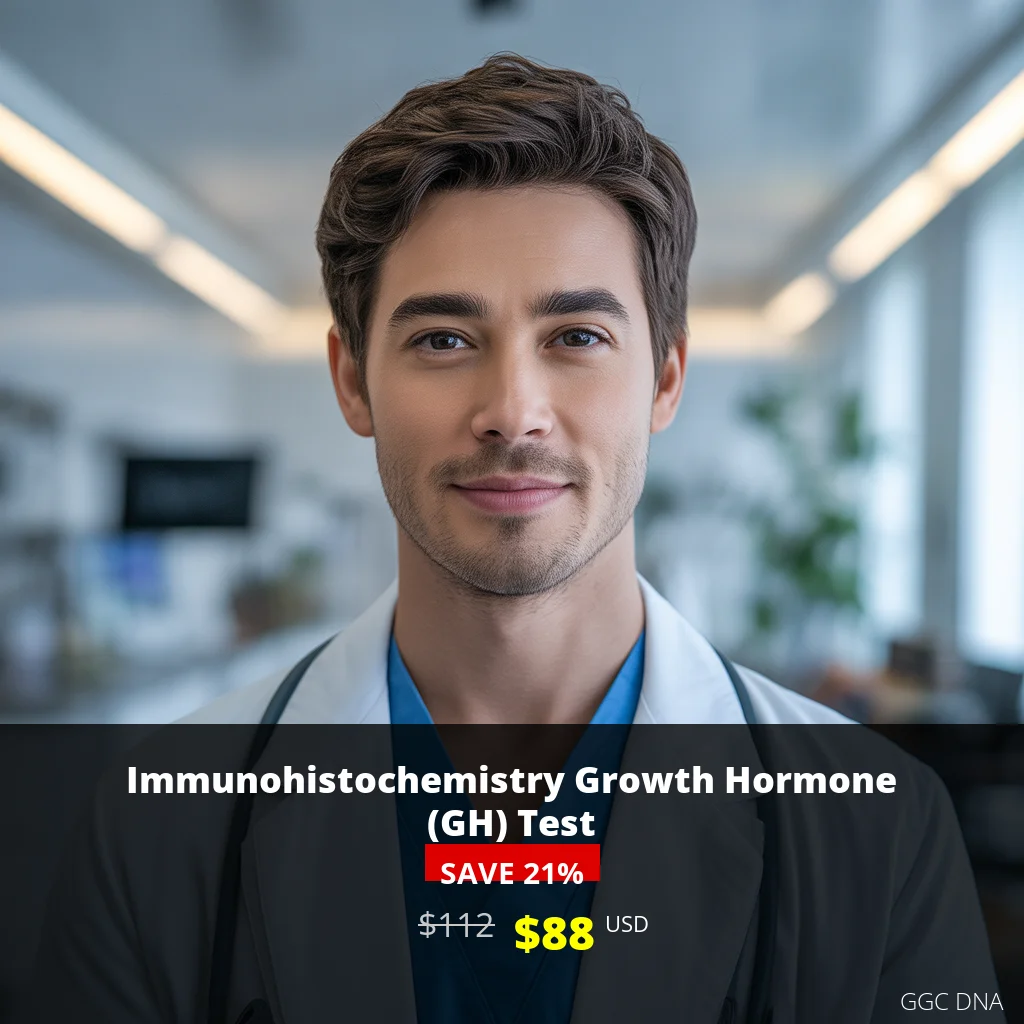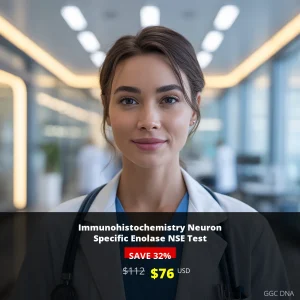Immunohistochemistry Growth Hormone (GH) Test
Comprehensive Introduction to Growth Hormone Immunohistochemistry Testing
The Immunohistochemistry Growth Hormone (GH) Test represents a cutting-edge diagnostic approach in modern oncology and pathology. This specialized laboratory procedure utilizes advanced immunohistochemical techniques to detect and visualize growth hormone receptors within tumor tissue samples. The test’s importance lies in its ability to provide crucial information about the molecular characteristics of tumors, particularly those suspected to be influenced by growth hormone pathways.
Growth hormone plays a significant role in cellular proliferation and differentiation, and its receptors are expressed in various tumor types. Understanding the presence and distribution of these receptors can significantly impact diagnosis, prognosis, and treatment decisions. This test bridges the gap between traditional histopathology and molecular diagnostics, offering clinicians valuable insights into tumor biology that were previously unavailable through conventional methods.
What the Immunohistochemistry GH Test Measures and Detects
This sophisticated diagnostic test specifically measures:
- Presence and distribution of growth hormone receptors in tumor tissue
- Intensity of receptor expression using specialized staining techniques
- Cellular localization of GH receptors (membrane, cytoplasmic, or nuclear)
- Percentage of tumor cells expressing growth hormone receptors
- Pattern of receptor distribution within the tumor microenvironment
The test employs monoclonal antibodies specifically designed to bind to growth hormone receptors. When these antibodies attach to their targets, they create visible staining patterns that pathologists can analyze under high-powered microscopy. The resulting data provides quantitative and qualitative information about receptor expression, helping clinicians understand the tumor’s biological behavior and potential responsiveness to various treatment modalities.
Technical Methodology
The Immunohistochemistry GH Test follows a rigorous protocol involving tissue preparation, antigen retrieval, antibody incubation, and visualization steps. The process begins with formalin-fixed paraffin-embedded tissue blocks, which are sectioned and mounted on slides. Specialized staining techniques then reveal the presence and distribution of growth hormone receptors, providing a comprehensive picture of the tumor’s molecular profile.
Who Should Consider the Immunohistochemistry GH Test
This test is particularly recommended for patients presenting with:
- Suspected pituitary tumors or adenomas
- Clinical features of acromegaly or gigantism
- Unexplained growth abnormalities in adults or children
- Tumors with suspected endocrine involvement
- Cases where growth hormone receptor status may influence treatment decisions
- Patients with recurrent or treatment-resistant tumors
- Individuals with family history of endocrine disorders
Symptoms and Clinical Indications
Patients experiencing symptoms such as unexplained rapid growth, changes in facial features, joint pain, excessive sweating, or other signs of hormonal imbalance should discuss this testing with their healthcare provider. The test is also valuable for monitoring treatment response in patients undergoing therapy for growth hormone-related conditions.
Significant Benefits of Taking the Immunohistochemistry GH Test
Undergoing this advanced diagnostic procedure offers numerous advantages:
- Precise Diagnosis: Provides definitive information about growth hormone receptor status in tumor tissue
- Treatment Guidance: Helps oncologists develop targeted treatment strategies based on receptor expression
- Prognostic Information: Offers insights into tumor behavior and potential clinical outcomes
- Personalized Medicine: Enables tailored treatment approaches specific to individual tumor characteristics
- Comprehensive Evaluation: Complements other diagnostic methods for a complete clinical picture
- Therapeutic Monitoring: Assists in assessing treatment effectiveness over time
Understanding Your Test Results
Your Immunohistochemistry GH Test results will provide detailed information about growth hormone receptor expression in your tissue sample. The report typically includes:
Interpretation Guidelines
- Positive Result: Indicates presence of growth hormone receptors, suggesting potential responsiveness to certain treatments
- Negative Result: Shows absence of detectable receptors, which may influence treatment selection
- Intensity Scoring: Measures the strength of receptor expression (weak, moderate, strong)
- Distribution Pattern: Describes how receptors are distributed within the tumor tissue
- Percentage of Positive Cells: Quantifies the proportion of tumor cells expressing receptors
It’s essential to discuss your results with your healthcare provider, who can interpret them in the context of your overall clinical picture. Positive results don’t necessarily indicate a specific diagnosis but provide valuable information for treatment planning. Your physician will consider these findings alongside other clinical, radiological, and laboratory data to develop the most appropriate management strategy.
Test Pricing and Availability
| Test Description | Price |
|---|---|
| Immunohistochemistry Growth Hormone (GH) Test – Discount Price | $88 USD |
| Immunohistochemistry Growth Hormone (GH) Test – Regular Price | $112 USD |
Turnaround Time and Sample Requirements
Our laboratory processes samples daily by 6 PM with the following turnaround times:
- Block samples: 5 days
- Tissue biopsy: 5 days
- Tissue large complex: 7 days
Sample Requirements: Submit tumor tissue in 10% formal-saline OR formalin fixed paraffin embedded block. Ship at room temperature. Please provide a copy of the Histopathology report, site of biopsy, and clinical history.
Nationwide Accessibility and Booking Information
We have diagnostic centers conveniently located across all major cities in the United States, including New York, Los Angeles, Chicago, Houston, Phoenix, Philadelphia, San Antonio, San Diego, Dallas, and San Jose. Our state-of-the-art facilities are equipped with the latest technology and staffed by experienced pathologists and laboratory professionals.
Take Action for Your Health
Don’t wait to get the answers you need for proper diagnosis and treatment planning. Our team of specialists is ready to assist you with scheduling your Immunohistochemistry Growth Hormone Test and answering any questions you may have about the procedure.
Call or WhatsApp us today at +1(267) 388-9828 to book your test or speak with our healthcare consultants. We’re committed to providing you with accurate, timely results and comprehensive support throughout your diagnostic journey.
Early and accurate diagnosis is crucial for effective treatment outcomes. Trust our expertise in immunohistochemistry testing to provide the detailed information your healthcare team needs to develop the best possible treatment plan for your specific condition.







